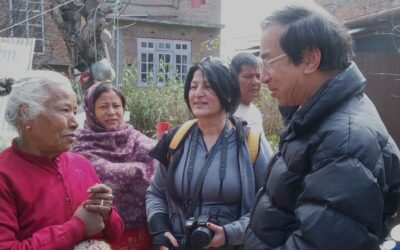It’s been a year since Mitra Path gave out its initial funding to a few micro-businesses in Kathmandu. Today we went back to Panga Village to see Nirmala, the Nepali woman who received a high-quality electric grinder and training so that she and a group of five other women could start a spice business to rebuild their lives.
We entered Panga through narrow streets lined with broken bricks, the remnants of homes and shops that never recovered from the quake. Our walk down a slope to Nirmala’s home was full of rocks that pierced into soles of my shoes. Nirmala greeted us, a sturdy woman with a smooth, wide face, angled with sharp features warmed by the sun. She had an aura of strength and industriousness, of someone who could get the job done. She had the openness of a new learner, a beginner’s mind, yet had the resolve to ask for what she needs.
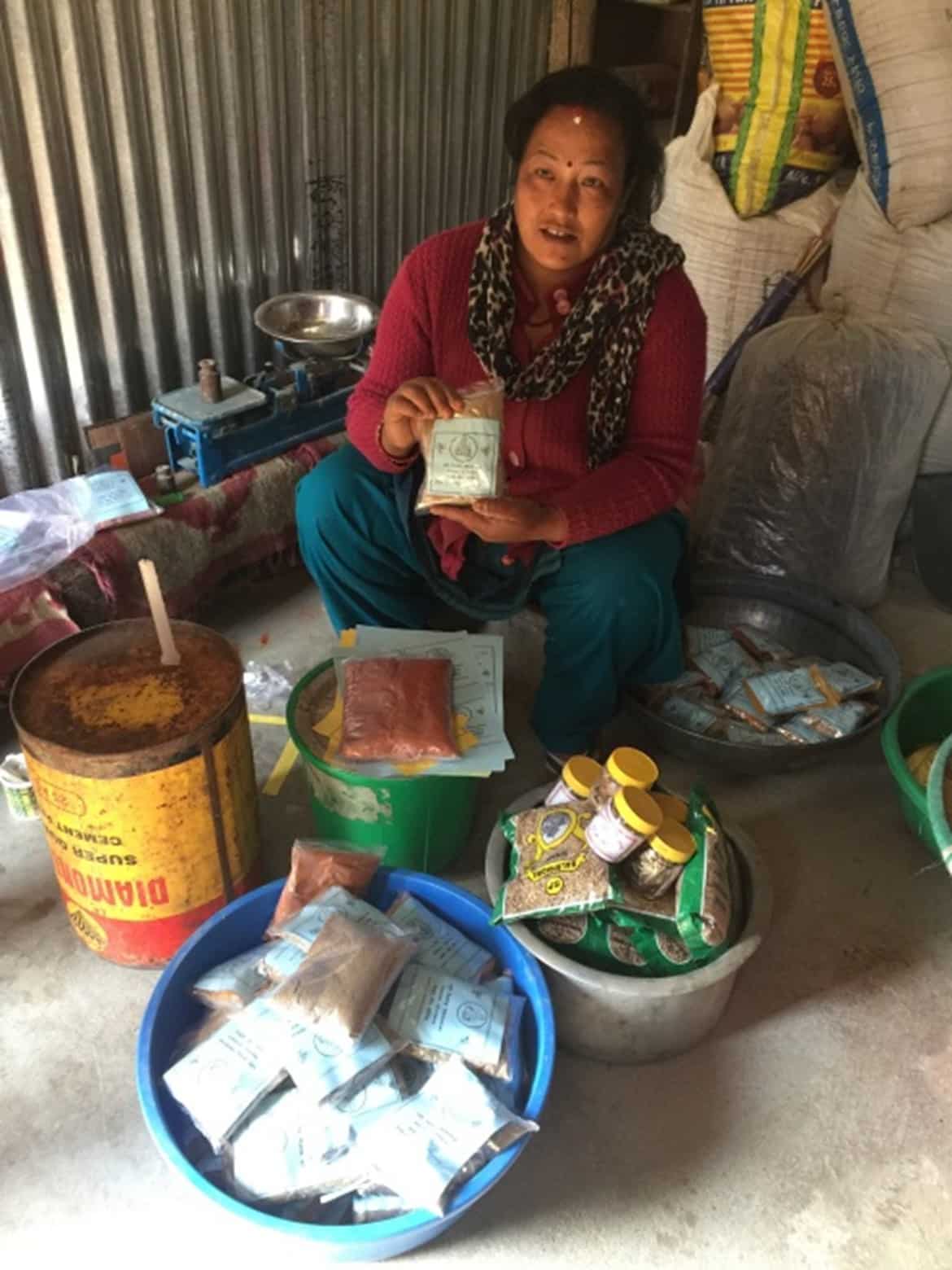
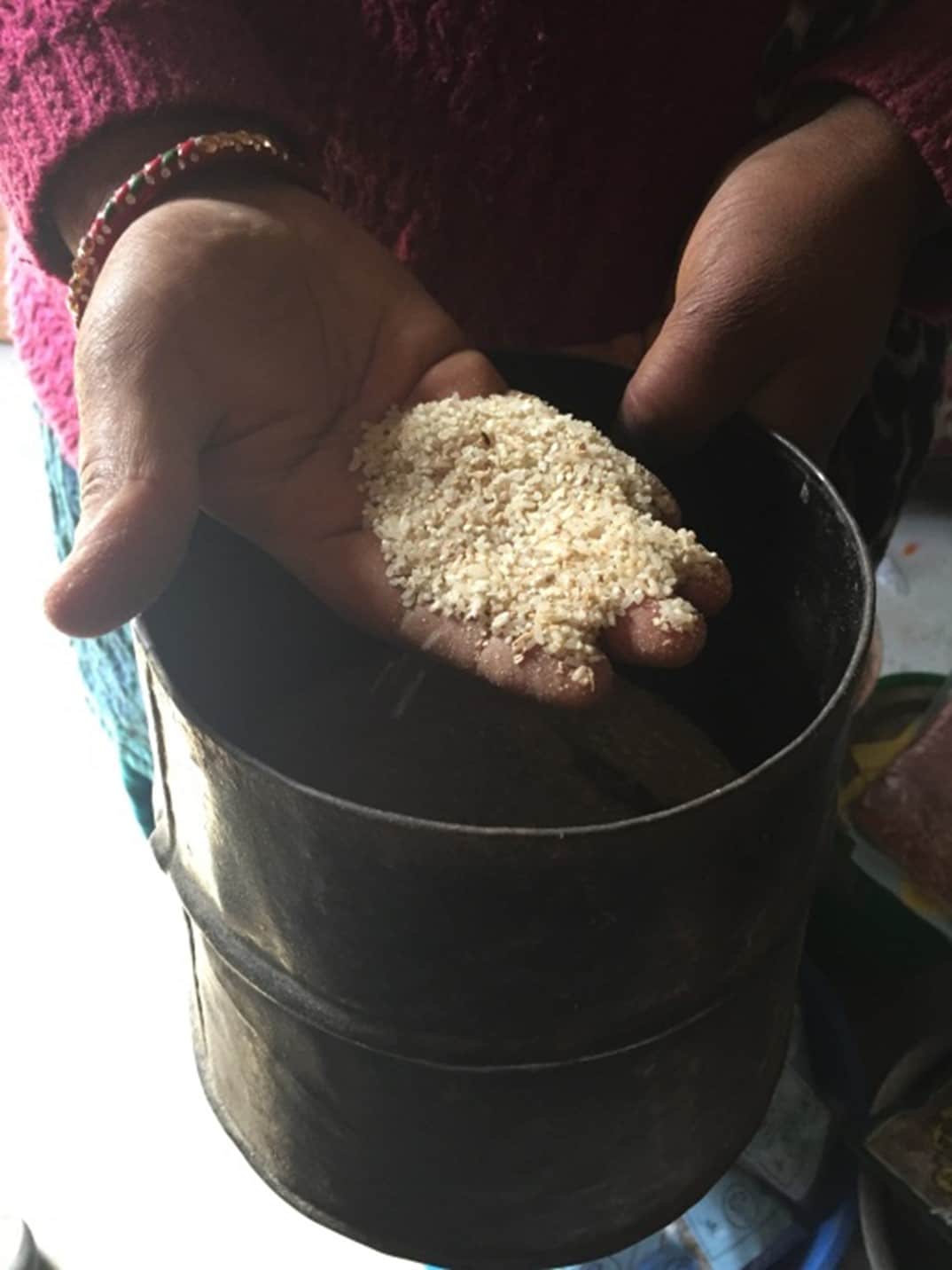
We stepped into the shade of her temporary shelter, and the scent of spices wafted toward us, tickling our noses. Little clear bags of bright yellow, orange and brown powders were stacked in piles on the swept floor. Alongside were plastic jars carrying dried whole herbs and larger clear bags holding bead-like coriander seeds. Sunbaked chilies sat inside a column of blue grocery bags, the top one exposed and abundant with deep red pigment. Behind all this was a wall of grain sacks that formed a kind of dam down the middle of the room. This held up a sea of tan powder that reached the back wall, something we later found out is a byproduct of ground millet. And on the right side of the room stood a metallic blue electric grinding machine.
What had started out as a group endeavor eventually became a one-woman operation, as the other four women dropped out of the spice project. Each had their own reason — some went abroad for work, some got discouraged, others faced various obstacles. But Nirmala stayed determined. She took out a loan and found customers. She started selling from her home, selling door–to-door, selling to stores, and spreading word about her spices at the marketplace. She even hired her husband. Deepak is a motorcycle repairman, but like a lot of men in the neighborhood, has been out of work since the earthquake. For months now, he’s been helping Nirmala with grinding on a full-time basis.
As we stood in the spice room, Deepak showed us a broken coil from the grinding machine that had lost its spring through heavy use. This original part wasn’t sold anywhere in their area so he had taken coils from an old sofa and created his own version. We smiled at his little piece of ingenuity, a makeshift part that has worked well and kept the grinder going. He said he enjoys working on this business with his wife, grateful that it allows them to stay in their community, support their family of five, and send their children to school.

Nirmala seems to have made a name for herself in the area and now people in the neighborhood come to her for spices. Around festival time in particular, she spends all her waking hours grinding to fulfill the flood of requests coming in. Recently, Nirmala and her husband have discovered a new business: a type of millet which leaves behind a fine shell during the grinding process. This byproduct – the tan powder we saw in the back of the room — is used by poultry farms as feed, and is in such high demand that Nirmala can’t keep up with her one machine.
Plans for the Future
In the next room, the same one where the women had gathered last year, Nirmala served us a cup of steaming milk tea. We sat on the floor on mats, cross-legged. White chickens ran past the door and a pigeon coop stood outside the entrance. Her oldest daughter, a young lady with long black hair, brushed her teeth outside in a makeshift bathroom. Deepak showed us a smooth wooden flute that Nirmala has been learning how to play. She practices each night, after 8 pm, when all her work is done. We learned that all her family members have lived and slept in that single room since the earthquake.


Nirmala showed us her book of accounts, her neat writing documenting the business activity in a well-organized ledger. This is a new skill that Ananta taught her after purchasing the grinder. Despite her loan repayment and expenses, she has still made a profit with her spices.
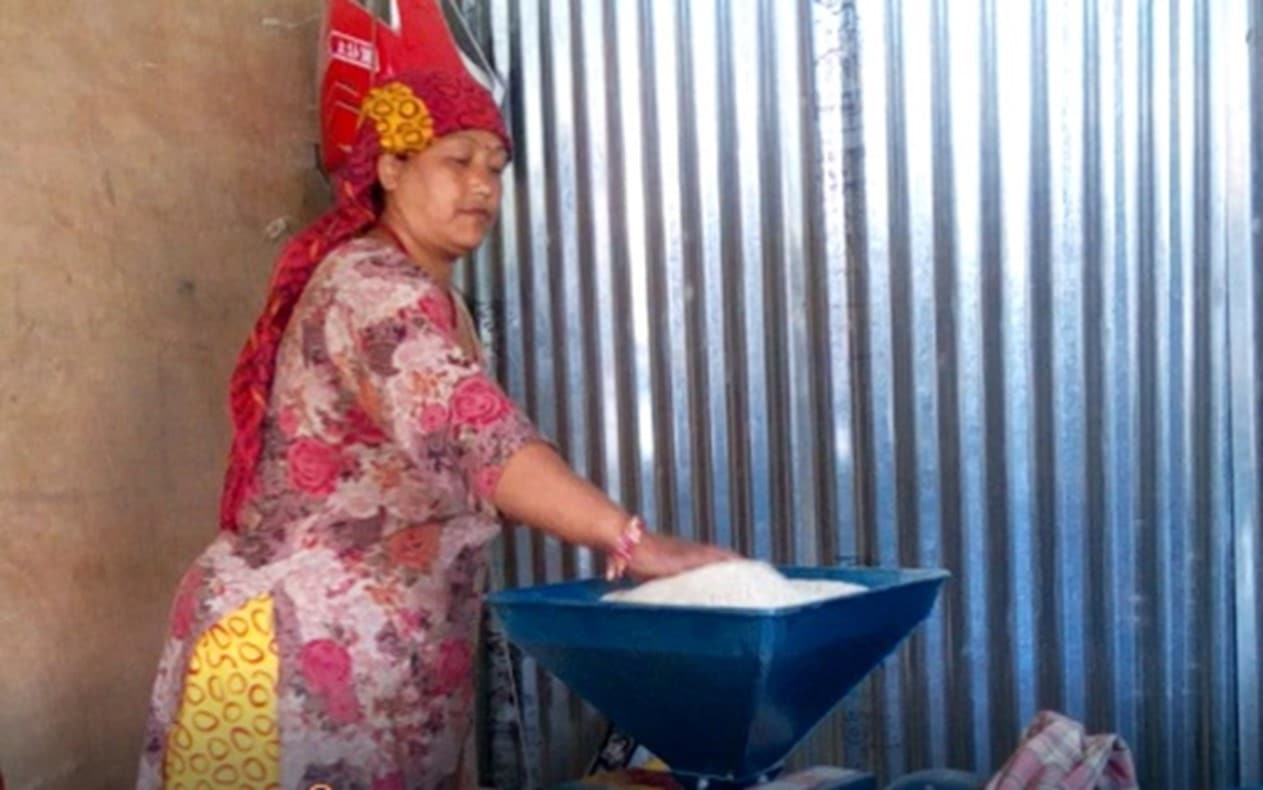
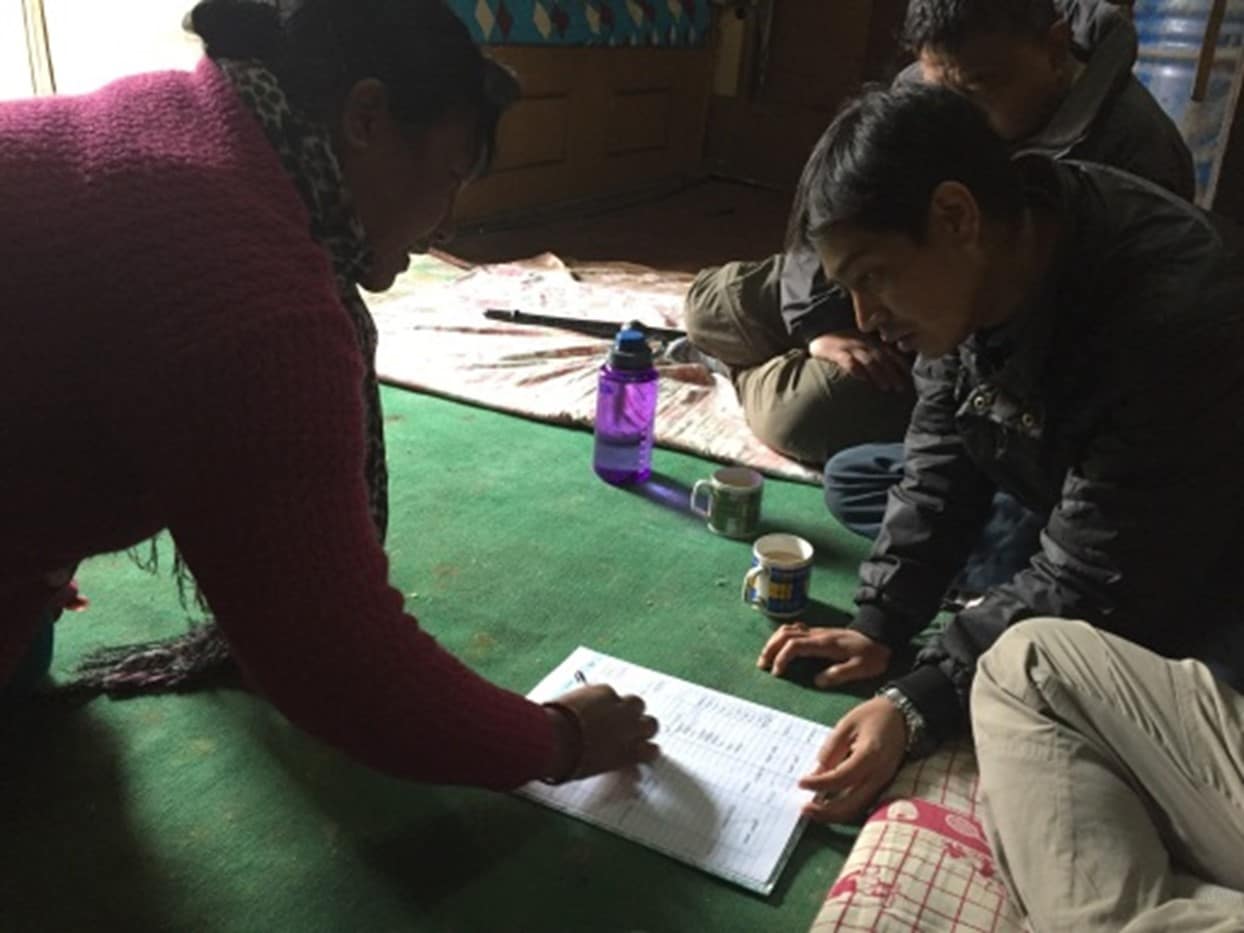
Nirmala showed us her book of accounts, her neat writing documenting the business activity in a well-organized ledger. This is a new skill that Ananta taught her after purchasing the grinder. Despite her loan repayment and expenses, she has still made a profit with her spices.
The millet, her newest business, has been particularly profitable and shows much potential. With spices, at this point, she is grinding chili, turmeric and cumin, and selling them separately. But she plans to sell masala – a mix of various spices – which customers would use for curry. She will need some training on how to make this mix.
Nirmala said many of the women in the area are looking for work and training, and they are eager to work for her, helping to pack spices and grains. She plans to expand by supplying to wholesale businesses in Kathmandu that Nirmala has connections with. She also hopes to sell the spices internationally. We found out that Nirmala’s father also ran a grinding business in another district, although it was no longer producing like it used to. Because of this, she foresaw an increasing demand for her own business and had been able to apply what she’d learned from him. She said she was happy to continue the same business he had.
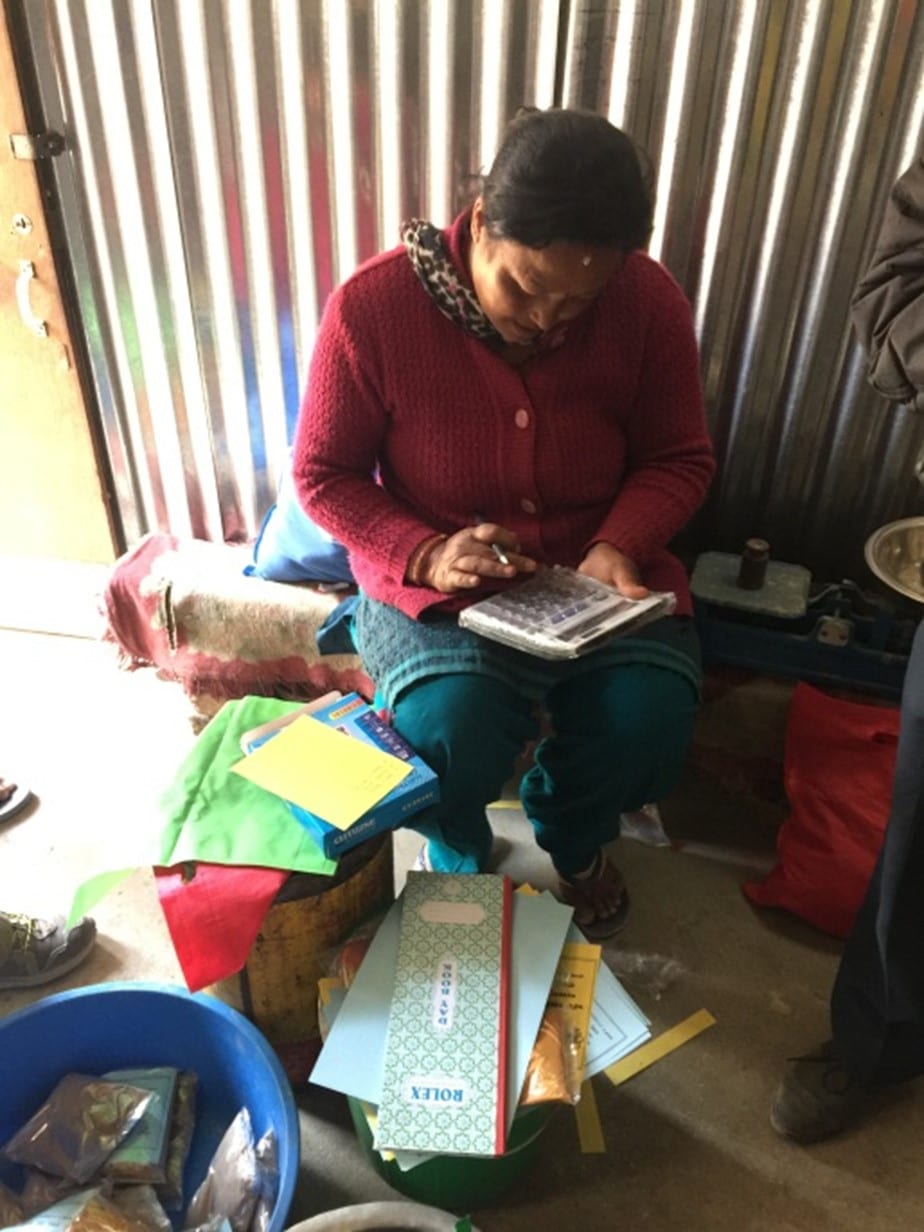
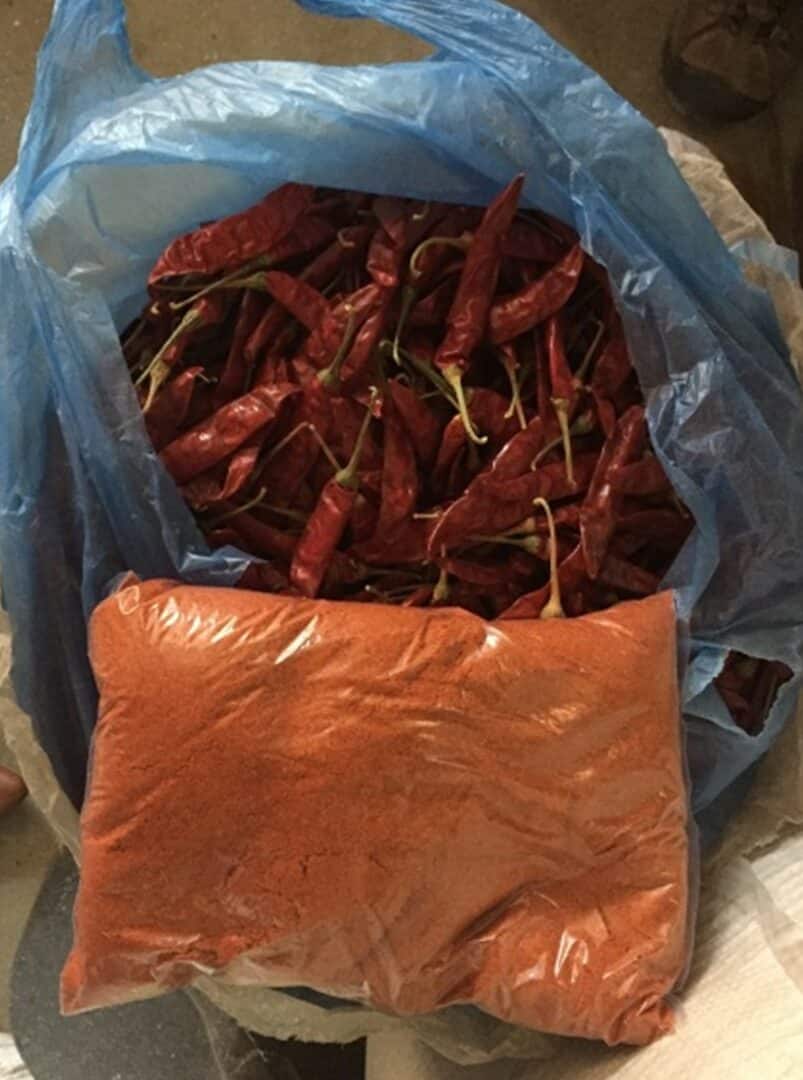
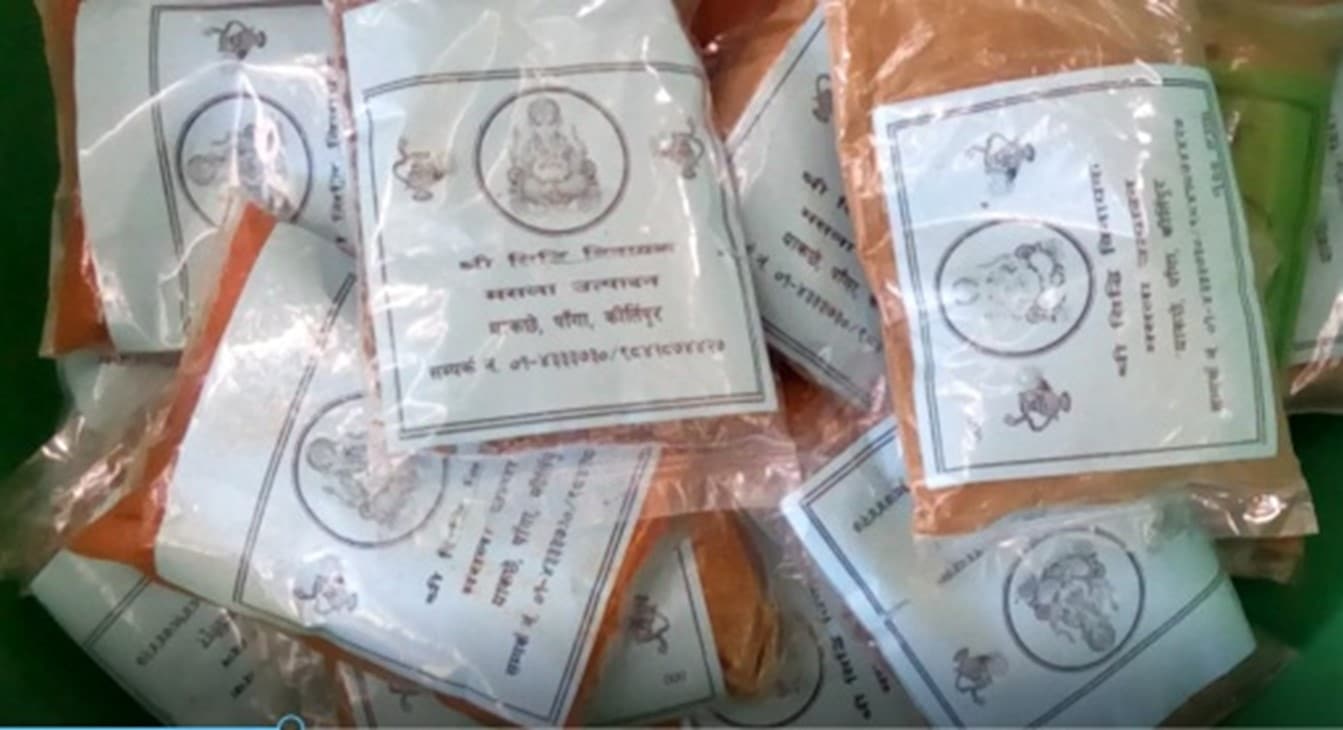
Right now, Nirmala is receiving varying requests of spices and grain from local customers. She explained that each time she receives an order, she has to finish what she is grinding first and then clean the machine completely before starting on the next product. With a second machine, she could dedicate one machine to just the millet, and use the other for spices, reducing the bottleneck in her operations. Mitra Path agreed to consider assisting Nirmala with purchasing one more machine, along with additional business guidance, so she could generate the income to become self-sustaining and employ more people.
Before we left, we bought some spices to take home to our family in Kathmandu and the U.S. Nirmala and Deepak’s eyes were bright. They seemed strong and dignified. Last year they looked like different people, having just emerged from the earthquake and stripped of their home and jobs. But now, they were engaged and hopeful…with plans to continue working. As they went around bagging the spices, the room around us showed us how hard they’ve been working in the past year. It was a testament to the impact one life can make in a community. The spices looked delicious and were perfectly wrapped, just like the kind you find in the grocery store. All around us was evidence of their earnest effort, in bright colors, vibrant and promising.

